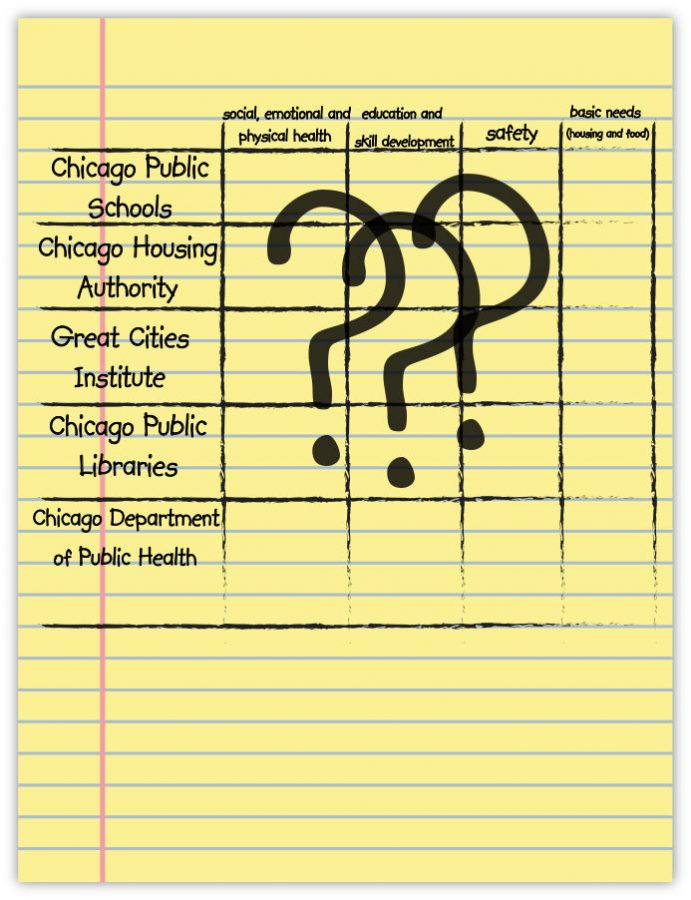City to grade youth quality of life
City to grade youth quality of life
February 11, 2018
To address problems facing Chicago’s youth, the city has teamed up with the private sector to create a youth quality-of-life index and scorecard.
The coalition consists of organizations such as the YWCA of Metropolitan Chicago, Chicago Urban League and Thrive Chicago, and city departments such as the Department of Public Health, Chicago Public Schools and the Chicago Housing Authority, according to a Jan. 29 mayoral press release.
The coalition will conduct research into city policies and programs involved with children’s development to determine the impact they have on their lives from birth until 24, according to the release.
“[The project] can improve for whom services are being targeted, who is the most in need or [in a] vulnerable population,” said Matt Wilson, economic development planner at the Great Cities Institute—a group involved in the project. “You can have a better idea who could benefit from services and [will allow the city to] provide efficient [services].”
The study will focus on four major areas: social, emotional and physical health; education and skill development; safety; and access to necessities such as housing and food.
“Chicago is like every other major metropolitan area where it has a number of complex and sometimes contradictory variables that you have to work through,” said Jaleel Abdul-Adil, associate professor of Psychology in Psychiatry and co-director of the Urban Youth Trauma Center.
Chicago has recently taken steps to increase the quality of life for youth who have had to deal with high homicide rates and school closings, as reported Oct. 9, 2017, by The Chronicle.
Since 2011, Chicago’s investment in youth services has tripled, with more than $75 million distributed to job initiatives such as youth violence and mentoring; health and homelessness; and the arts, including media, library and parks services, according to the press release.
“We do not expect [the quality of life scorecard] to tell a completely positive story,” said Chris Wheat, senior policy adviser in the mayor’s office. “But it holds the mayor and other city council officials accountable to make sure we are not backsliding in the investments we are making.”
The youth scorecard can also set a benchmark, which can be looked at to track progress and ensure progress is being made, and that quality of life problems are not being neglected, he added.
While the project looks good on paper and could be a success, Abdul-Adil said more community groups should be involved to increase its effectiveness.
“Chicago is a city of neighborhoods,” Abdul-Adil said. “I might tailor it different [depending on which neighborhood I’m in]. Cookie cutter doesn’t work.”
The information is expected to be released this summer and will be used for the city’s 2019 budget, according to the release.
“Any time you can conduct research or provide some evaluation on how cities are spending their budgets, that is tremendously valuable,” Wilson said. “It can assure taxpayer money is being well spent, and the appropriations are large enough to make an impact [and] that they are targeted [properly].”








